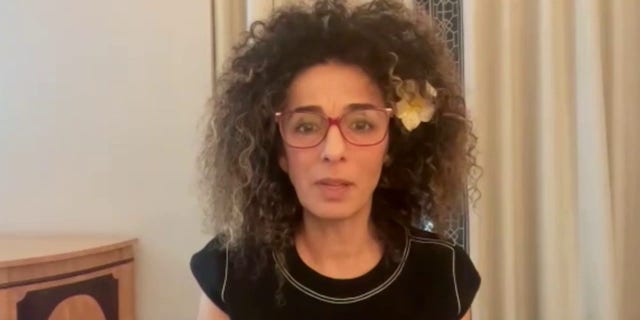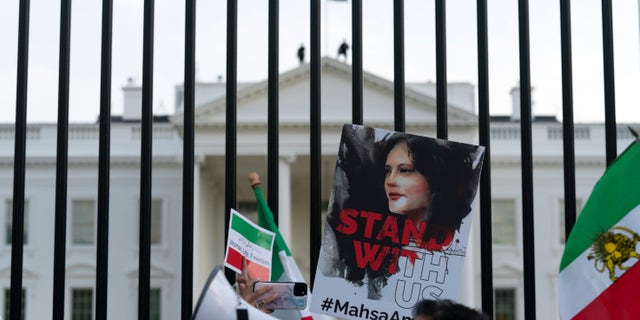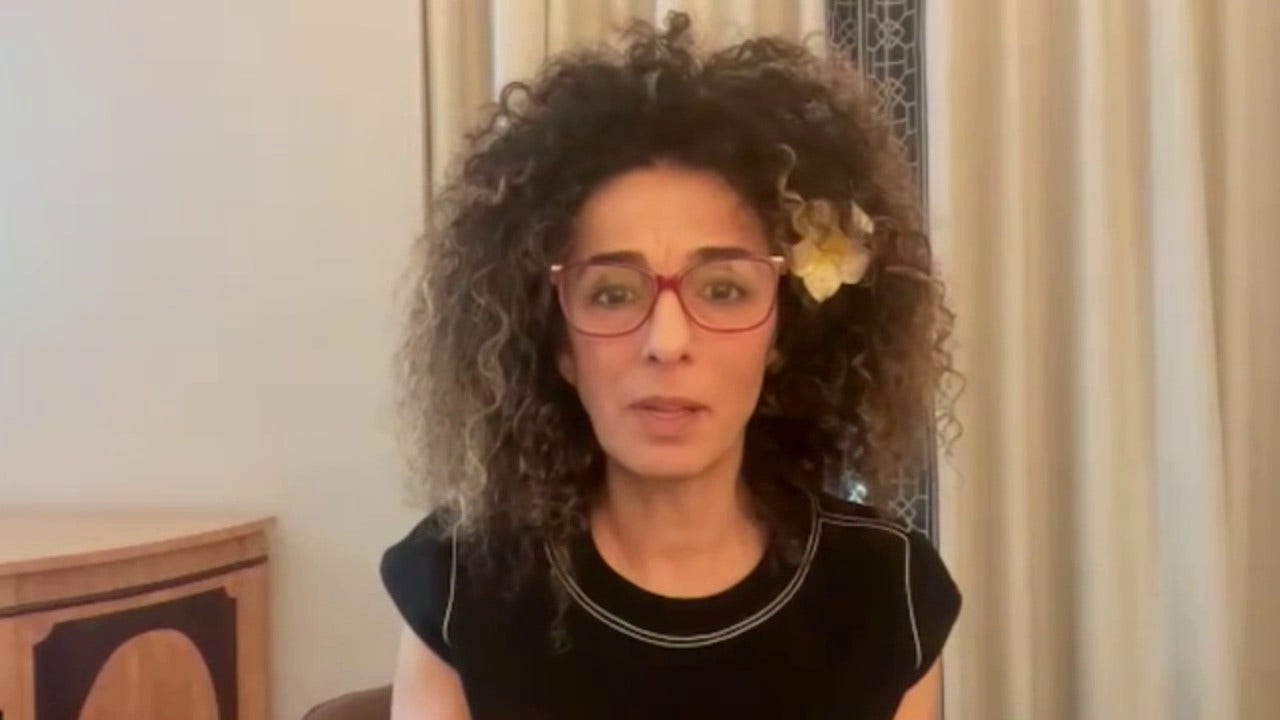It’s been more than 40 days since 22-year-old Mahsa Amini was beaten to death in the custody of Iran’s brutal morality police for not wearing the mandatory Muslim headscarf.
At least 250 people have been killed in the unrest since Amini’s death, including 27 children, according to Javaid Rehman, a United Nations representative on Human Rights in Iran.
The United States has announced sanctions on 14 individuals and multiple entities, including six government officials responsible for the violence on Iranian activists. But Iranian activists like journalist Masih Alinejad, who is in the U.S. and facing threats against her life, says the Biden Administration can do much more.
“The whole world ignored that for eight years. They were like, ‘You know, this is part of your culture. We don’t want to touch it.’ For me, it’s sad. It’s beyond sad that it didn’t need for Mahsa Amini to be killed for the whole world to understand that this is important,” Alinejad told Fox News.
In this photo taken by an individual not employed by the Associated Press and obtained by the AP outside Iran shows students of Sharif University of Technology attending a protest Oct. 7, 2022, sparked by the death in September of 22-year-old Mahsa Amini while in the custody of the country’s morality police.
(AP Photo)
“These are the Rosa Parks of Iran. These are like the women suffragists. … This is just the beginning. Iranian women are furious, and by burning their headscarf, by taking to the street in large numbers across Iran, they’re sending a message to the rest of the world that this is a revolution not only against compulsory hijab, it’s against gender apartheid regime.”
A bipartisan group of U.S. lawmakers sent a letter to tech companies Friday, including Google, Facebook and Apple, urging them to expand communication services in Iran. Activisits say that’s how the Biden Administration can help, with technology like Starlink so protesters can communicate.
Video from cities in southeast Iran showed Iranian security forces shooting protesters Friday as they shouted “Death to Khamenei,” Iran’s Supreme leader. At least two were killed.
Alinejad, who has 8 million social media followers and around-the-clock security in the U.S. due to threats from the Iranian regime, says this is different than the Green Revolution in 2009 that was crushed.
“This is different because this is the first time in the history that women across Iran burning their headscarves. It means that we had enough. We want to end this barbaric regime,” she said. “That’s why I always said that compulsory hijab is like the Berlin Wall. If we get success, we could tear this wall down. The Islamic Republic won’t exist.”
Female students at Isfahan University of Medical Sciences waved their headscarves in the air chanting “freedom, freedom, freedom” to mark the 40th day of mourning after Amini was allegedly murdered by Iran’s brutal morality police for showing her hair.

Iranian activist Masih Alinejad
(Fox News)
In the hometown of Amini, tens of thousands of people ignored governmental threats and roadblocks this week and showed up to mourn.
IRAN’S ELITE TECHNICAL UNIVERSITY EMERGES AS HUB OF PROTESTS
The Iranian Diaspora Collective, a nonpartisan multi-faith group, bought a billboard in Times Square with an image of Mahsa Amini and three silhouetted women holding up their headscarves and the words “Woman Life Freedom,” a message they want on billboards in cities across the U.S. to highlight what they say is the revolution taking place in Iran. They have raised more than $420,000 through a Go Fund Me campaign to pay for more billboards.
Alinejad started posting videos of women taking off their veils in 2014 in a Facebook feed called “My Stealthy Freedom.” She says she first realized how oppressive the Iranian regime was when she was 7 years old as her parents got her ready for school and tried to tame her curly hair. That’s when she realized her hair was controlled by the government.

Demonstrators rally outside the White House to protest against the Iranian regime in Washington Oct. 22, 2022.
(AP Photo/Jose Luis Magana)
“I remember when I had to go to school, I had to cover these — like big hair, massive hair. It was not easy. My mom was holding me, and my father was just, you know, cutting between, like, get some of the hair out to make it easy to cover them up,” Alinejad recalled while showing a picture of herself at age 7.
CLICK HERE TO GET THE FOX NEWS APP
Now, two Iranian female journalists — Niloofar Hamedi, who first reported about Amini’s death at the hands of the morality police, and Elaheh Mohammadi, who covered Amini’s funeral — are charged with espionage. Hamedi has been held in prison for over a month. Journalist watchdogs say these two female journalists‘ lives are now in serious danger.
The Iranian Revolutionary Guard Corps and Iran’s Intelligence Ministry are trying to blame the CIA, Mossad, MI6 and the Saudi government for starting the protests.


